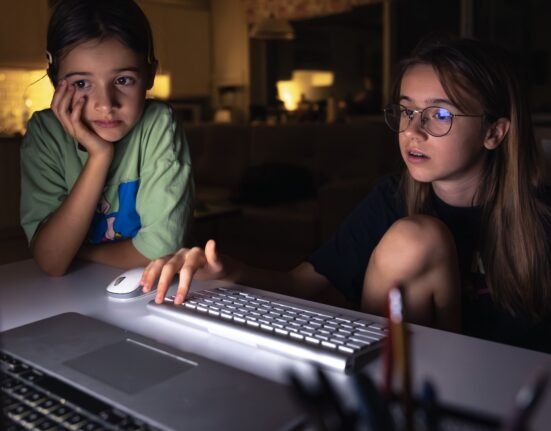COVID-19 has affected the millions of lives, from prolonged closures of schools making it difficult for students to attain their rightful education, to adverse work arrangements such as no pay leave or unemployment. This disruption in daily routines caused psychological distress and developed mental health conditions like anxiety and depression. A series of studies on how COVID-19 affects people’s mental health had been conducted by Professor Tatia Lee of the Department of Psychology, Dr. Winnie Tso, and Dr. Patrick Ip of the Department of Paediatrics & Adolescent Medicine, LKS Faculty of Medicine, along with Professor Wai-Kai Hou of the Department of Psychology, the Education University of Hong Kong (EdUHK), and other researchers from the University of Hong Kong (HKU). The results of Professor Tatia Lee and Dr. Wai-Kai Hou’s research, published in 2022, revealed that disruptions to everyday routines could increase the risk of developing anxiety and depression. Two representative population-based surveys had been conducted by the research team in two phases of the developing pandemic: Survey 1: February 25 to March 19, 2021, N=4,021 (during the less severe pandemic), and Survey 2: April 15 to May 1, 2021, N=2,008 (during the more severe pandemic). In Hong Kong, a total of 6,029 individuals aged 15 and up participated in the surveys. The results from surveys 1 and 2 revealed that the probabilities of acquiring anxiety were 14.9% and 14%, respectively, while the probabilities of developing depression were 19.6% and 15.3%. Disturbance in daily routines was associated with increased risks of depression and anxiety symptoms. More strains were placed on the mental health of those whose daily routines were interrupted as the pandemic progressed. Financially pressurized individuals, those with low educational opportunities or disrupted parents, and elderly people who live alone were more likely to develop anxiety and depression. The findings revealed a link between socioeconomic status (SES) and mental health. The financial pressure imposed had caused more burdens on the population’s mental health, such as reduced access to free or low-cost meals at schools resulting in increasing food costs for low-income families. Individuals with fewer possessions (lack of savings, or home) were more likely to suffer from mental illness. Loneliness had been demonstrated to be a significant predisposing factor for depressive symptoms in previous investigations. Professor Lee and Dr. Hou examined the link between loneliness and depression symptoms in 1,972 participants aged between 18 and 92 years during the acute phase of COVID-19 in Hong Kong. According to the research, loneliness had been linked to depression symptoms, rumination thought to cause depression had been increased with loneliness and positively associated with the intensity of depressive symptoms among older adults >65 years old.
Resilience and regular daily routines reduced the likelihood of anxiety as revealed by the study. As a result, developing personal resilience, including confidence in one’s ability to change and recover from adversity, and sticking to regular daily routines were critical for improving mental health. Those who were more resilient were less likely to suffer anxiety, as measured by their capacity to adapt to change, recover from illness or adversity, and maintain their daily routines. Furthermore, more resilient persons with regular primary routines were more significantly connected with decreased probability of developing anxiety, particularly among those who reported lower levels of worry. These findings highlight the need to develop cognitive and behavioural resilience in mitigating COVID-19’s harmful effects on our mental health.
Children’s Mental Health
Hong Kong schools have been closed since February 2020 to stop the spread of COVID-19. Research had discovered that highly effective lockdown had substantially cost children’s mental health. Particularly, youngsters were at a higher risk of emotional and behavioural problems during the pandemic while their parents’ stress levels increased significantly, according to a study conducted by Dr. Tso’s team in 2020, examining 29,202 families with children. The results also mentioned that, in comparison to socio-economic status, the mental health of the children and parents was significantly stressful, with single-parent families experiencing more stress than families with both parents. Sharing caregiving responsibilities among family members is a critical factor in avoiding household stress during the pandemic as indicated by these results. The team conducted another study in 2022 and found that during the period of intermittent school closure, the risk of improperly treating the children with special needs increased, with those with mental disorders being at a substantially higher risk. Children with Special Educational Needs and their families require a wide range of support services in health, social welfare, and education. While COVID-19 necessitates technology-based learning, research had shown that prolonged use of electronic devices was linked to increased parental stress and psychosocial difficulties in children. Dr. Tso’s team’s study, published in 2020, also found that disturbance to daily routines (e.g., irregular sleep schedules, prolonged use of electronic devices) is linked to increased psychosocial difficulties in both children and adults. Dr. Hou’s team discovered that disturbance to various daily routines had a substantial association with increased probabilities of anxiety and despair, both at the onset of the pandemic and as it continued, in a study published in 2021. Regardless of the incidence rates and intensity of government-based interventions in Hong Kong, individuals who reported medium-to-high disruption to primary and secondary routines were more likely to experience a range of emotional/stress symptoms.
To help children, young people, and older persons improve their mental health and overall well-being, the study teams have developed the following ten recommendations:
- Maintain routines wherever possible such as eating habits, sleep schedules, social activities, and academic/work schedules.
- Build resilience through confidence, such as the ability to change and recover from hardships, as well as cultivate a positive mindset and practice self-reflection, appreciation, and kindness toward others.
- Create cooperative social interactions.
- Remember that the current restrictions are only in place for a limited time.
- Reorganize job priorities and improve goal-setting and time management skills.
- Focus on little things in life that bring happiness, instead of comparing the accomplishments to those of others.
- Establish plans and expectations by strengthening family relationships and planning other activities.
- Encourage positive parent-child interactions because they can help children with their psychological problems and minimize parental stress.
- Limit children’s exposure to electronic devices and ensure enough sleep to help with their behaviour and social-emotional development.
- Vaccinate children and families to combat the COVID-19 virus.
COVID-19 has unquestionably caused people unimaginable adversities over the last two years. Although long-term disease containment methods were successful in slowing the transmission of the virus, the societal upheavals they caused were undeniably harmful to mental health. The pandemic has severely hampered people’s activities at home, from school closures to social gathering restrictions. As a result, such actions have intensified feelings of isolation and increased the likelihood of depression and anxiety symptoms. Although there is no way of knowing when the pandemic would stop, as more research on the pandemic’s effects is emerging, there is a lot one can do in the interim to manage and improve their mental health.












Leave feedback about this